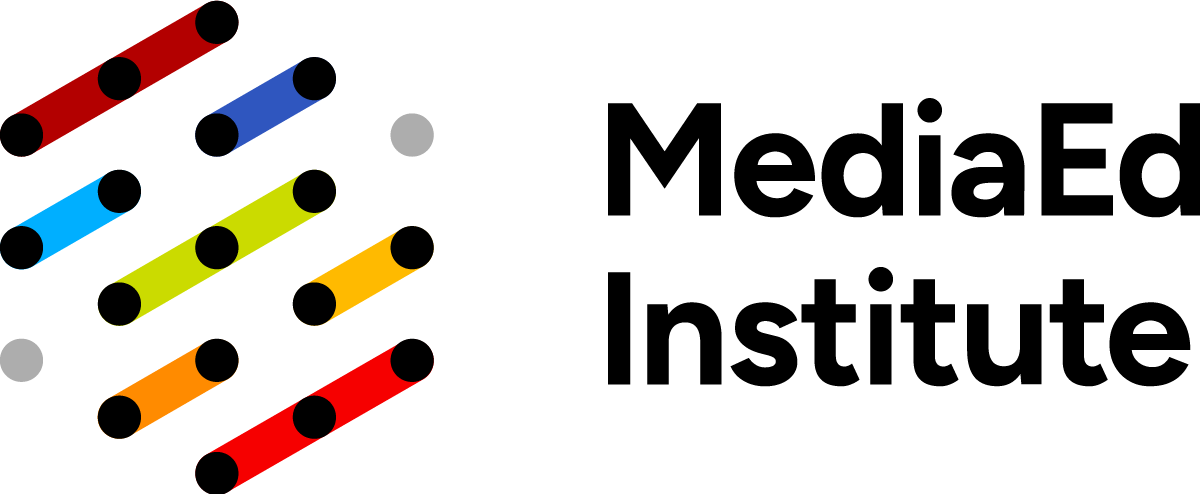- Home
- Micro-Credentials Courses
MediaEd Institute
Micro-Credentials: Anytime Learning
As we reimagine online education, we are partnering with Pathwright to offer a new online Anytime (asynchronous) learning experience on key topics at the cutting edge of media education.
DURATION: July 21 - August 5, 2024
LOCATION: Real Time Learning on Zoom plus Anytime Learning on the Media Education Lab's Pathwright LMS
PROGRAM FEE: $45
Perception, Fear, and Media: Roots of Polarization
Fear restricts our vision, narrows our thinking, and limits our capacity for understanding and learning. We don’t ask questions when we’re in a state of fear. We don’t evaluate sources or evidence. We don’t consider history, context, or implications. Prolonged fear, fed by repeated exposure to fear-based messages, turns these restrictions into mental habits that are resistant to change. Fear Based Thinking restricts our ability to see things from other perspectives and make us vulnerable to manipulation. Beliefs become immune to logic. Information bubbles become impenetrable. Divisiveness and polarization become part of life.
This course looks at how fear-based messages and fear-based thinking affect our perceptions, thinking, and mental health. It offers practical solutions that free us from fear and allow us to see and think more clearly. Participants will explore how to incorporate an understanding of fear and fear-based thinking into media literacy education.
Teaching the Conspiracies: Part II
The 2-week course "Teaching the Conspiracies: Part II - Historical & Contemporary" offers educators and adults an essential toolkit for navigating and understanding the complex landscape of conspiracy theories. Participants will explore historical and contemporary conspiracies, learning to apply the SIFT (Stop, Investigate, Find, Trace) web literacy framework and lateral reading techniques to evaluate online information critically. The course emphasizes creating and sharing media products like sketchnotes and InfoPics, engaging in reflective discussions, and fostering informed citizenship. Through interactive learning and practical assignments, participants will develop enhanced critical thinking and media literacy skills, gaining insights into the cultural impact of conspiracy theories and their role in civic responsibility. This course not only enriches professional portfolios with a completion certificate but also prepares participants to teach and facilitate media literacy lessons effectively. Learn more here: Teaching the Conspiracies: Part II
Previous Micro-Credentials Courses:
Teaching the Conspiracies: Part I
In this 6 week course, participants will learn how the SIFT web literacy framework (Stop, Investigate the source, Find trusted coverage, Trace to the original”) paired with lateral reading, offers excellent strategies for interrogating online information to decide what is valid and trustworthy. Ongoing culture wars, rife with conspiracy theories and social media fueled “rabbit holes,” make our fractured information landscape challenging to navigate. We will use a lesson series focusing on the NASA Apollo moon landings, contemporary YouTube “hoaxers,” as well as “flat earthers” to develop better media literacy skills! We will also create a variety of media products together, including sketchnotes, interactive whiteboards, and narrated slideshows to demonstrate our learning. By the end of the course, participants will have the knowledge and skills to teach and facilitate media literacy lessons utilizing SIFT and lateral reading, helping develop resilient skills for informed citizenship.
Critical AI Literacy
In this 6-week course, you will delve into teaching about and with generative AI. You will use generative AI tools to create lesson plans and instructional materials. You will also use AI tools to enhance strategies to employ AI ethically in classroom settings. As you deepen your grasp of AI technologies, you'll be empowered to incorporate AI tools into meaningful contexts. Engaging hands-on with diverse AI platforms will bolster your comprehension. At the same time, a strong emphasis on Critical AI Literacy ensures you grasp the societal and ethical ramifications of AI in areas such as work, creativity, culture, politics, health, and the economy.
Foreign Language with Movie Critical Analysis
Pedro Antonio Férez Mora, Estefanía Sánchez Auñón, and Yvette Coyle
In this 6-week course, you will learn to explore movies from a socio-critical perspective to enhance students’ foreign language literacy competencies. Drawing on multiliteracies pedagogy and the tenets of task-, cinema-, and drama-based teaching, this course will provide participants with a toolkit of multiple strategies and techniques for enhancing students’ foreign language development. The course is bilingual and, therefore, attendees may follow it either in English and/or Spanish. By the end of the course, participants will be able to use the toolkit to develop foreign language learners' literacy skills using movies in their own educational setting.
The Affordances of Infographics
In this 6-week course, you will learn the best practices for captivating audiences and visualizing complex data through infographic design. Grounded in researched-based infographic literacy, participants will examine methods for engaging in data storytelling, creative design principles, and fostering methods of accessing and analyzing infographics across multiple genres. At the conclusion of the course, participants will self-design a digital infographic and assess its attributes with a toolkit of resources.
Leadership of Care
In this 6-week course, you will learn to explore how media can support us to become more self-aware, identify our biases, build cultural competencies, and center our work around equity. Where do we find the courage and how can we replenish that courage with restoration? As a media educator, you have implicitly accepted a role of leadership. Which kind of leader do you want to be? By the end of the course, participants will be able to hone your skills in empathy and social-emotional learning to support inclusive leadership as well as your own self-care. Become a MediaEd champion and lead the way for others to do the same!
Supporting Your Learning
Our mentors brings their expertise and experience in media education to help you and your dyad partner to brainstorm, advise and support your final project at the MediaEd Institute.
